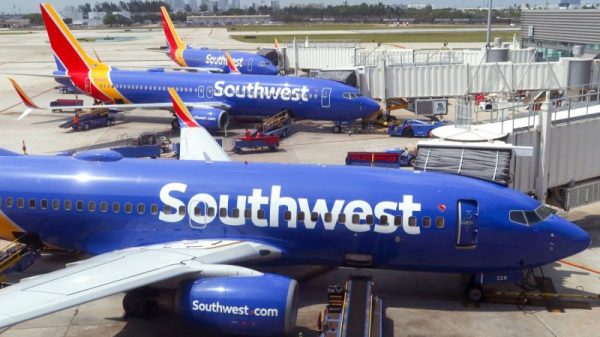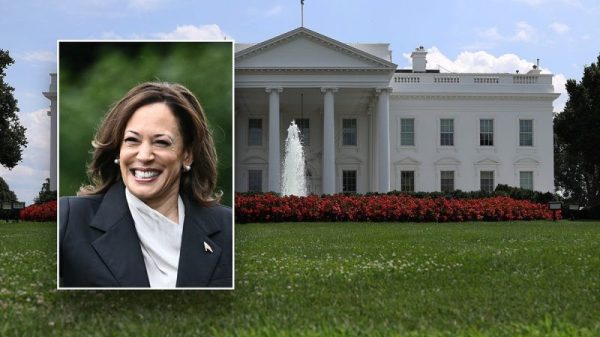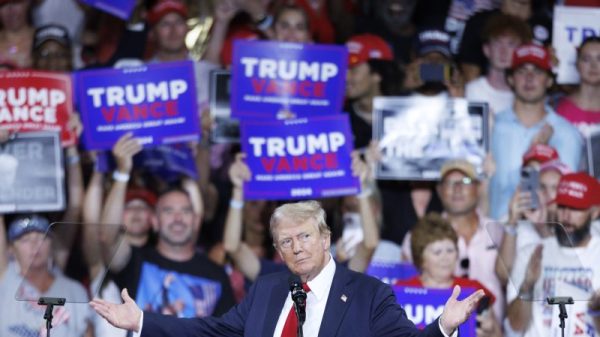MEXICO CITY — Mexico has emerged as a major target in the Republican presidential primary campaign, and it will likely come up again in Wednesday night’s debate. Border security is a top concern, with illegal crossings near record levels. The candidates are also pledging to escalate the U.S. crackdown on fentanyl, the cheap, powerful synthetic drug that’s smuggled in from Mexico. More than 100,000 Americans have died from overdoses in each of the past two years, most blamed on the opioid. Prominent Republicans have called for using U.S. military force against Mexican cartels.
But many of the candidates’ proposals don’t take into account realities on the ground in Mexico. Here are three ways in which the candidates are getting Mexico wrong.
Former U.N. Ambassador Nikki Haley and Florida Gov. Ron DeSantis have called for deploying U.S. Special Operations forces to Mexico to battle the cartels. But the candidates aren’t taking into account the size, complexity and reach of Mexico’s criminal organizations.
Just one example: A research paper published recently in Science magazine estimated that about 175,000 people work for the cartels. If they were one company, the study said, they’d be Mexico’s fifth largest employer.
Beyond that, drug trafficking organizations have penetrated many local and state police forces. The narcos have gained political allies in mayors’ offices, governors’ mansions and the executive branch, through bribery or threats.
In other words, the cartels aren’t small, isolated units operating on the margins of society. They’re deeply interwoven into Mexico’s political, economic and social life.
What about destroying the cartels by taking out their leaders? That’s been tried for at least 15 years. With crucial U.S. help, Mexican forces have captured or killed scores of drug lords, such as Joaquin “El Chapo” Guzman of the Sinaloa cartel.
But the “kingpin strategy” hasn’t diminished the supply of drugs heading north. The cartels — which are really more loose-knit networks of criminals — simply reconstitute themselves. The U.S. drug market is too huge and profitable to ignore.
Mexico is the United States’ No. 1 trading partner, a crucial source of products and inputs ranging from vegetables to auto parts to medical devices. It’s also the main transit route for irregular migrants and asylum seekers trying to reach the United States. Any unilateral U.S. military action would blow up the relationship, with far-reaching economic and social consequences.
It’s true that bilateral cooperation hasn’t exactly been ideal. Yet Mexico has helped a succession of American presidents — including Donald Trump and Joe Biden — who’ve appealed for assistance in discouraging U.S.-bound migration. The Mexican government has deployed thousands of soldiers and national guard troops to deter undocumented migrants. It’s permitted huge numbers of migrants to wait on its territory for U.S. asylum appointments. It’s also imposed visa requirements for South Americans hoping to fly into Mexico and then head to the U.S. border.
That support could disappear.
A U.S. incursion would infuriate the Mexican military, which is in charge of drug enforcement. The army is highly nationalistic, with a deep historical memory of the U.S. invasions in the 19th and early 20th centuries. The generals would very likely veto further anti-drug cooperation.
Not only would Mexicans rally around their government. Latin American countries, with their own histories of U.S. intervention, would undoubtedly close ranks around Mexico. That could provide new opportunity to China, a major U.S. rival that’s is seeking to make deeper inroads into Latin America.
During an earlier debate, Sen. Tim Scott (R-S.C.) accused President Biden of leaving the U.S. border “wide-open and insecure, leading to the deaths of 70,000 Americans in the last 12 months because of fentanyl.”
But the big surge in fentanyl isn’t due to immigrants sneaking it over an unguarded border. Nearly 90 percent of seizures have taken place at official border crossings. And most of those arrested have legal permission to enter the United States. James Mandryck, a senior official at U.S. Customs and Border Protection, testified before Congress last July that 73 percent of fentanyl seizures at the border in the previous nine months involved Americans, according to the Associated Press.
Fentanyl is highly concentrated — up to 50 times as potent as heroin. Because it’s compact, it’s easy to stash in backpacks or hide in the vast flow of legitimate goods moving in trucks across the U.S. border every day. So drug traffickers haven’t felt the need to send the illicit narcotic through remote, unguarded areas of the border.







































